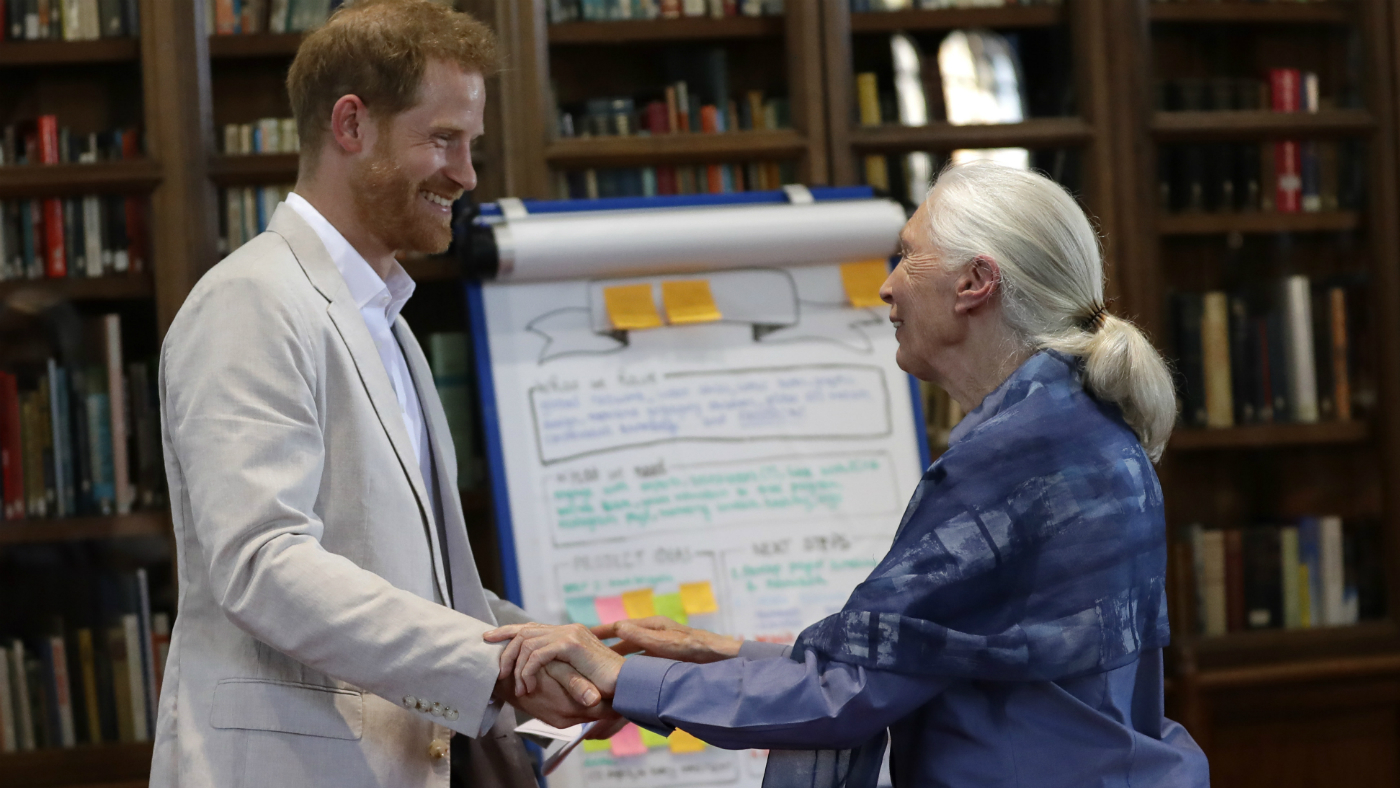The meaning of unconscious bias
Prince Harry discusses prejudice and more in the latest edition of Vogue

A free daily email with the biggest news stories of the day – and the best features from TheWeek.com
You are now subscribed
Your newsletter sign-up was successful
Prince Harry has spoken out about how “unconscious bias” and the failure of many people to acknowledge their own prejudices can lead to racism.
The Duke of Sussex made the remarks during an interview with conservationist and primatologist Dr Jane Goodall for the September edition of Vogue, which has been guest-edited by his wife, Meghan.
Goodall and the Duke discuss how human beings should live in harmony with the natural world as well as each other, hoping to leave something better for the following generations, reports The Guardian.
The Week
Escape your echo chamber. Get the facts behind the news, plus analysis from multiple perspectives.

Sign up for The Week's Free Newsletters
From our morning news briefing to a weekly Good News Newsletter, get the best of The Week delivered directly to your inbox.
From our morning news briefing to a weekly Good News Newsletter, get the best of The Week delivered directly to your inbox.
“[When] you start to peel away all the layers, all the taught behaviour, the learned behaviour, the experienced behaviour... at the end of the day, we’re all humans,” Harry says.
Goodall replies: “Especially if you get little kids together, there’s no difference. They don’t notice: ‘my skin’s white, mine’s black’ until somebody tells them.”
Harry, who also reveals that he and the Duchess of Sussex plan to have a maximum of two children, continues: “Just as stigma is handed down from generation to generation, your perspective on the world and on life and on people is something that is taught to you. It’s learned from your family, learned from the older generation, or from advertising, from your environment.”
Yahoo! News reports him as adding: “...Life is about evolving. You are continually changing, and if you don’t think that every day is a learning process, then life is going to be very tricky for you.”
A free daily email with the biggest news stories of the day – and the best features from TheWeek.com
What is unconscious bias?
Unconscious bias - or implicit bias - occurs when incorrect judgements are placed on people because of stereotyping. These biases are ingrained into everyday culture.
This bias is part of the reason why minority groups are at a disadvantage despite equality laws, notes the Guardian.
Harry, who has previously criticised some racist overtones in media coverage of his mixed raced wife, describes unconscious bias as “something which so many people don’t understand, why they feel the way that they do”.
The term “unconscious bias” began to be used in the late 1990s after US social psychologists started measuring people’s prejudices through what they called the Implicit Association Test. The psychologists’ paper, published in 1998, claimed their tool measures “the unconscious roots of prejudice”, and it showed that 90-95% of people were susceptible.
The reliability of the Implicit Association Test is contested, but bias still “seeps into decisions that affect recruitment, access to healthcare, and outcomes in criminal justice”, the Guardian says.
“I’m not saying that you’re a racist,” Harry said, “I’m just saying that your unconscious bias is proving that, because of the way that you’ve been brought up, the environment you’ve been brought up in, suggests that you have this point of view - unconscious point of view - where naturally you will look at someone in a different way. And that is the point at which people start to have to understand.”
But even though this bias may be unconscious, the Guardian adds, that doesn’t mean that discriminatory behaviour is therefore acceptable.
“If you’re aware of these associations then you can bring to bear all your critical skills and intelligence to see it’s wrong to think like that,” says Lasana Harris, a neuroscientist at University College London. “We all have the ability to control that.”
Goodall said that this behaviour does not show in her research on chimpanzees, noting that humans have a lot of inherited tendencies.
“They’re not learned. They’re just there,” she says in the interview in Vogue, which hits newstands on Friday.
-
 Political cartoons for February 21
Political cartoons for February 21Cartoons Saturday’s political cartoons include consequences, secrets, and more
-
 Crisis in Cuba: a ‘golden opportunity’ for Washington?
Crisis in Cuba: a ‘golden opportunity’ for Washington?Talking Point The Trump administration is applying the pressure, and with Latin America swinging to the right, Havana is becoming more ‘politically isolated’
-
 5 thoroughly redacted cartoons about Pam Bondi protecting predators
5 thoroughly redacted cartoons about Pam Bondi protecting predatorsCartoons Artists take on the real victim, types of protection, and more